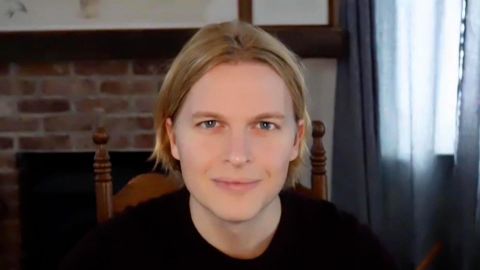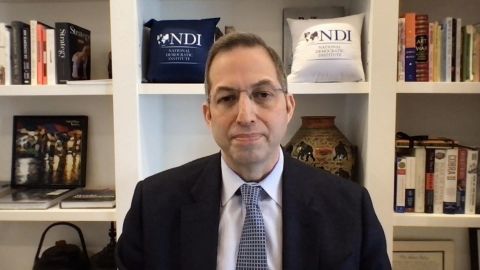Read Transcript EXPAND
CHRISTIANE AMANPOUR: I wonder what you make of the demonstrators out on the streets. They’re really causing people to sit back and take notice, because they have gone out to face down one of the — basically, the world’s scariest military juntas.
DEREK MITCHELL, FORMER U.S. AMBASSADOR TO MYANMAR: It is remarkable. And it just shows you the resilience of the Myanmar people that they have shown generation after generation. I mean, you’re seeing just what’s on the screen from the videos of major cities, but you’re now seeing demonstrations in cities throughout the country, in small towns throughout the country and every village throughout the country. I mean, the military always says that they want unity in the country. In this fractious, very fractious country, this is the one thing that’s unifying them. They want the military out of politics. They want elections. They want democracy. And they want Aung San Suu Kyi back as leader.
AMANPOUR: Ambassador, you know these people very well. And you were there at the beginning of the democratic process there. Do you think the military will crack down hard? We understand, allegedly, there’s already been live fire. We know that there’s one critically wounded, at least. And, also — and I find this extraordinary and indicative — quite significant numbers of police appear to have defected and appear to be supporting the civilian protesters and the civilian leadership.
MITCHELL: It’s remarkable how — again, how brave people are and that there’s a growing sort of pressure for social protest and civil disobedience against what’s going on to not legitimize what the military did. The history is very sad in this regard. The military has shown no compunction against shooting its own people. It certainly has been engaged in atrocities against the ethnic minorities, ethnic nationalities in all corners of the country. We hear most about the Rohingya, but they have been fighting the longest-running civil war in the world in Kachin State and Shan State, in Karen, all throughout the country. So, they are trained to do as ordered. And if they — and it’d be interesting to see who they bring in. If the local police are not going to be involved, if they will join the protesters, will, for instance, the military bring in folks on the outskirts and tell some of the hardened forces that these people are traitors and you must take action? They really — you have a military that is not going to give very easily. And you have people that are not going to give in very easily. So, we will just have to watch to see what results from this. But I’m obviously very, very worried from history.
About This Episode EXPAND
Former ambassador Derek Mitchell discusses how the U.S. can help preserve democracy in Myanmar. Constitutional law expert Noah Feldman examines the legal arguments at play in the impeachment trial. Musician Phoebe Bridgers explains the inspiration for the album she released in lockdown. New Yorker writer Ronana Farrow discusses his investigation into the January 6 Capitol insurrection.
LEARN MORE



